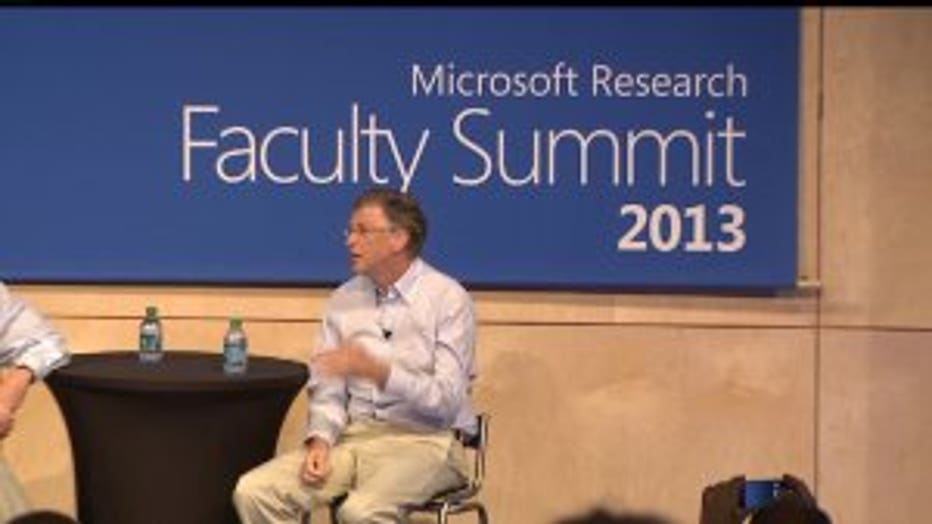Gates: World is in 'a golden age of computer science'
REDMOND, Wash. -- Microsoft co-founder Bill Gates said Monday the world is in "a golden age of computer science" and that he believes the next great advances will be in education, medicine, agriculture and better communication.

Gates returned to the Redmond headquarters of the company for the first time in more than five years as the keynote speaker at a summit focused on Microsoft's research.
"We're in a golden age of computer science," Gates told the audience. "The original vision of Microsoft, that we ought to dream about what software could do if we had infinite computing and infinite storage -- that's almost is our reality today."
Technology has helped his Bill & Melinda Gates Foundation focus on improving education in this country while tackling extreme poverty and health problems in the poorest countries around the world, he said.
"We've saved about 10 million lives (overseas) that otherwise wouldn't have been saved," he said. "And our goal for the next decade is 50 million.
"It's clear that innovation, particularly technical innovation, new vaccines, new seeds, monitoring things to make sure government workers do what they're supposed to, including education, that we can make much faster progress to get these people out of these poverty traps now than ever before."
In 1975, Gates and Microsoft created a goal -- of a computer on every desk in every home in America. Now, many people carry computers in their pockets, too.
He said the next advances will be in education, medicine, agriculture, digital currency and better communication -- and social media will play a role.
"People can make fun of it (social media) because a lot of it is used for ‘what my cat had for breakfast’ type things," Gates said. "I think of it in a broader context -- the enrichment of communications to people who have common interests. And there, I see it will be a strong foundation.”
Gates didn't just talk about Microsoft's successes, but also about its mistakes. He drew a roar of laughter from the crowd when he said that in those cases of mistakes, the company was clearly just ahead of its time.
The Microsoft summit brought leading researchers and educators from around the world to Redmond to talk about the next big thing.
"The opportunity to solve a lot of these problems is about finding people to put together ... experts in different fields … then you’ve really got something," said Microsoft Chief Operating Officer Kevin Shofield.
One of the trends Microsoft is looking at is establishing better communication between people and their computing devices.
Microsoft spends about as much on computing research as the federally funded National Science Foundation.

